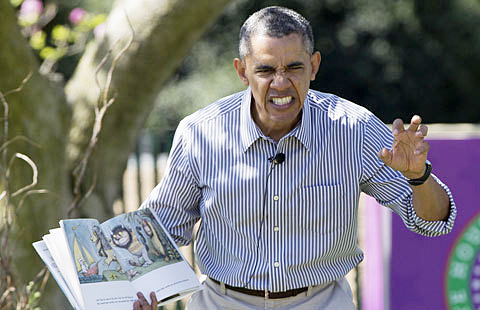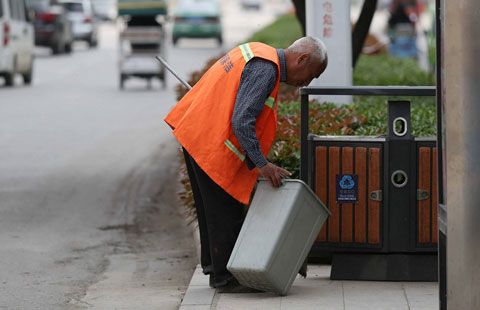Pact to reduce sea conflicts
Updated: 2014-04-23 01:58
By ZHAO SHENGNAN in Qingdao, Shandong (China Daily)
|
||||||||
more than 20 countries from the Pacific region unanimously approved a landmark maritime agreement on Tuesday to reduce the chances of miscommunication or the potential for situations to arise that could lead to conflict in busy sea lanes.
The Code For Unplanned Encounters at Sea was passed at the Western Pacific Naval Symposium, a biennial meeting that opened in Qingdao, Shandong province. A tactical maneuvering and signal manual was agreed to govern the conduct of warships and aircraft from the signatory countries that unexpectedly come into close proximity at sea.
Observers said the non-binding document marked a substantial move to increase maritime communication and safety and signaled the Chinese navy’s determination to strengthen cooperation with its counterparts.
Calling the code "a milestone document" in the symposium’s history, Wu Shengli, commander of the Chinese navy, urged participants to take this opportunity to encourage frontline forces in the air and at sea to develop effective and efficient communication channels and procedures.
"We need to respect history and take history as a mirror and continue to resolve maritime disputes and conflicts through peaceful means as well as avoid extreme behavior that may endanger regional security and stability,” he said during a speech.
"The People’s Liberation Army navy will unswervingly adhere to peaceful development and sincerely hopes to maintain the peace and stability of the region together with other navies,” Wu said.
The risks of unexpected encounters were highlighted by a near-miss in December between US guided missile cruiser USS Cowpens and a warship supporting China’s sole aircraft carrier, the Liaoning, in the South China Sea.
After the incident, both countries moved to calm the situation and stressed the importance of Sino-US military ties.
Harry Harris, commander of the US Pacific Fleet, said the code "is an important step forward to reduce tension on the sea in the region”.
"It’s important for all of us to learn to work together in peace so we can effectively respond together in crisis. The code will help,” he said, adding that diplomacy is the only acceptable way for responsible nations to resolve issues.
Katsutoshi Kawano, chief of staff of Japan’s Maritime Self-Defense Force, told China Daily he is "very happy" about the approval of the code, saying it will enhance communication and maritime safety.
Zhang Junshe, a researcher at the Naval Military Studies Research Institute of the PLA, said China contributed many constructive ideas during the long discussions, showing its strong willingness to engage with the other navies.
China, one of the 12 founding members of the symposium, is hosting the two-day event for the first time since its establishment in 1987.
More than 140 delegates from 21 member countries and three observer nations are attending the event, including the United States, Japan, Vietnam and the Philippines.
In a separate item, member states of the symposium unanimously agreed to grant Pakistan observer status on Tuesday. Bangladesh, India and Mexico are the other observers.
On Wednesday, multinational maritime exercises will be conducted off the coast of Qingdao to mark the 65th anniversary of the PLA navy.
The exercises, which feature joint maritime search and rescue operations, are not held under the framework of the symposium, Chinese navy spokesman Liang Yang said on Sunday.
Seven visiting ships from Bangladesh, Pakistan, Singapore, Indonesia, India, Malaysia and Brunei will join the exercises. China will send warships, supply ships, a hospital ship, helicopters and marines to the exercises.

 Dignitaries and royals raise ecological awareness
Dignitaries and royals raise ecological awareness
 College ping pong lures Chinese students
College ping pong lures Chinese students
 McDonald's will make over mainland stores
McDonald's will make over mainland stores
 Chinese reporters shop till they drop in LA
Chinese reporters shop till they drop in LA
 William and Kate visit Australia's indigenous academy
William and Kate visit Australia's indigenous academy
 Obamas host White House Easter Egg Roll
Obamas host White House Easter Egg Roll
 Photo Story: Dying man seeks caregiver for ailing wife
Photo Story: Dying man seeks caregiver for ailing wife
 Wrongly jailed man lands stable job
Wrongly jailed man lands stable job
Most Viewed
Editor's Picks

|

|

|

|

|

|
Today's Top News
Everyone's a winner in Boston Marathon
Doubt clouds Obama's trip
Fatal obesity case sets the alarm bells ringing
Google Glass 'works' to bolster image
Pact to reduce sea conflicts
Chinese American appointed to commission
Obama's trip not to 'contain' China
College ping pong lures Chinese students
US Weekly

|

|








